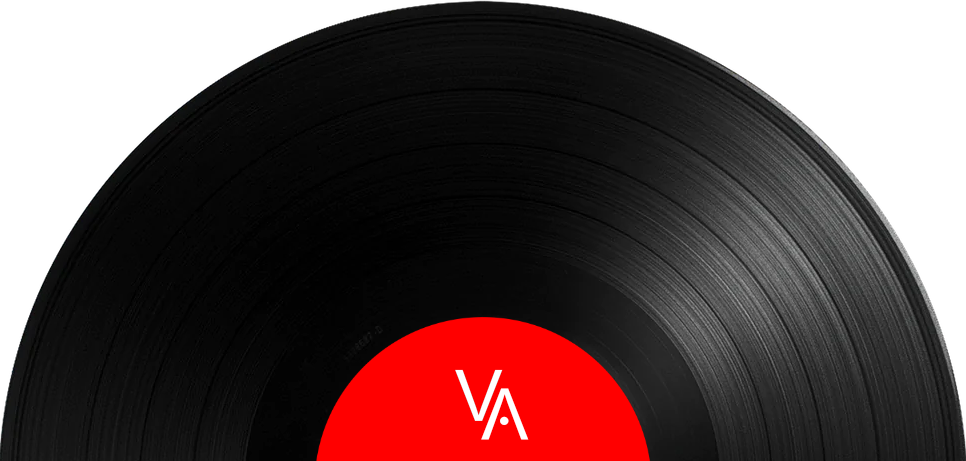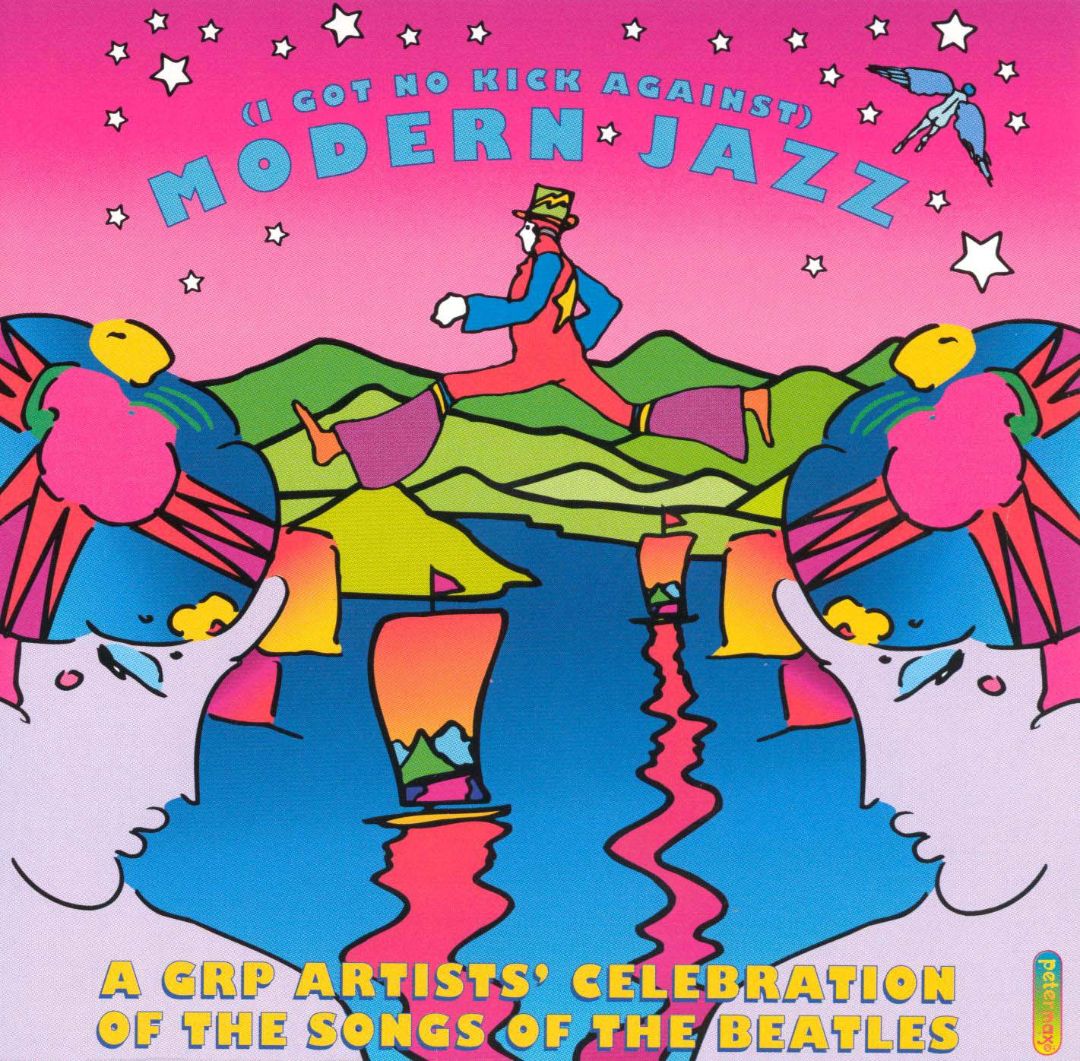
I love this record, which joined my collection in 1995. I hadn’t played it in years - probably a decade-and-a-half - and then it just one day randomly ends up on the turntable. It’s GRP Records’ jazz tribute to The Beatles and I’d forgotten how good it is. GRP started out as an all-digital record label, which I know goes against the grain of what I'm doing here with a mostly analog website, but this record was put together with care and it's a nice package. Yes, it's a digital recording, but …
Digital can be good, if done right. That doesn't mean it's better than analog, but it's the world we live in and sometimes you have to just deal with it. There's probably no reason to own a vinyl pressing of a digital recording (from this era, anyway), but it sounds good enough and I can actually read the jacket notes without having to use a magnifying glass. One can only imagine how great it could have sounded if it was an all analogue recording!
As tributes go, it’s up there. Completely unpretentious, wonderful production and it’s interesting and fun to hear such classic songs translated into so many different styles. Diana Krall doing And I Love Her is a treat, as is Dave Grusin’s piano interpretation of Yesterday, which was nominated for an Emmy, if memory serves.
GRP was never a jazz label in the vein of, say, Pacific Jazz or Blue Note. The music the label released was slick and polished and light, lacking the stuffiness of what some jazz purists would call, well, jazz. They might even call GRP the un-jazz jazz label.
And I get it. Miles Davis would probably not approve.
But I’ve always liked the sounds the label’s artists have put out and this record is a great collaboration of that talent. It's a guilty pleasure. In a bad mood? Drop the needle anywhere on the four sides contained within this colourful sleeve and you’ll be feeling fine in no time.
GRP was founded by Oscar-winning composer and Grammy Award-winning jazz musician Dave Grusin and his best friend - and former drummer turned engineer - Larry Rosen. The two men go back a long way, both having been members of Andy Williams' band. Grusin embarked on a solo career and released his debut album, Subways Are for Sleeping. He also composed film scores. Rosen started his own commercial recording agency and set about producing music for television commercials and films.
The two men first professionally collaborated in 1972 when Rosen was recording a musician named Jon Lucien and asked Grusin to do the musical arrangements for the album, which was called Rashida. During this time Grusin was also working with Sergio Mendes, Peggy Lee and a young guitarist named Lee Ritenour.
Rosen and Grusen eventually formalized their working relationship and were almost immediately approached by Blue Note Records to produce an album by a young musician from Detroit who been playing with jazz and R&B star George Benson named Earl Klugh. They agreed and Klugh's self-titled album, released in 1976, was the first official release under their newly formed production company, which they called Grusin/Rosen Productions (GRP). They decided to embrace digital recording at a time when the technology was first gaining attention.
The first time I happened across GRP was in 1987 when I went to see a movie in an iMax theatre in Winnipeg. I don't remember what movie it was, but I do remember the music they played in the theatre before the movie started. It was from a recording called GRP Live In Session, which I still have, on LP (which, as stated earlier, probably makes no sense at all). But I like it.
GRP was sold in 1990, and the name later changed to Great Records Period for some dumb reason. Rosen died in 2015 at age 75. Grusin, at age 85 at the time of this writing, is still groovin'.
I love this record, which joined my collection in 1995. I hadn’t played it in years - probably a decade-and-a-half - and then it just one day randomly ends up on the turntable. It’s GRP Records’ jazz tribute to The Beatles and I’d forgotten how good it is. GRP started out as an all-digital record label, which I know goes against the grain of what I'm doing here with a mostly analog website, but this record was put together with care and it's a nice package. Yes, it's a digital recording, but …
Digital can be good, if done right. That doesn't mean it's better than analog, but it's the world we live in and sometimes you have to just deal with it. There's probably no reason to own a vinyl pressing of a digital recording (from this era, anyway), but it sounds good enough and I can actually read the jacket notes without having to use a magnifying glass. One can only imagine how great it could have sounded if it was an all analogue recording!
As tributes go, it’s up there. Completely unpretentious, wonderful production and it’s interesting and fun to hear such classic songs translated into so many different styles. Diana Krall doing And I Love Her is a treat, as is Dave Grusin’s piano interpretation of Yesterday, which was nominated for an Emmy, if memory serves.
GRP was never a jazz label in the vein of, say, Pacific Jazz or Blue Note. The music the label released was slick and polished and light, lacking the stuffiness of what some jazz purists would call, well, jazz. They might even call GRP the un-jazz jazz label.
And I get it. Miles Davis would probably not approve.
But I’ve always liked the sounds the label’s artists have put out and this record is a great collaboration of that talent. It's a guilty pleasure. In a bad mood? Drop the needle anywhere on the four sides contained within this colourful sleeve and you’ll be feeling fine in no time.
GRP was founded by Oscar-winning composer and Grammy Award-winning jazz musician Dave Grusin and his best friend - and former drummer turned engineer - Larry Rosen. The two men go back a long way, both having been members of Andy Williams' band. Grusin embarked on a solo career and released his debut album, Subways Are for Sleeping. He also composed film scores. Rosen started his own commercial recording agency and set about producing music for television commercials and films.
The two men first professionally collaborated in 1972 when Rosen was recording a musician named Jon Lucien and asked Grusin to do the musical arrangements for the album, which was called Rashida. During this time Grusin was also working with Sergio Mendes, Peggy Lee and a young guitarist named Lee Ritenour.
Rosen and Grusen eventually formalized their working relationship and were almost immediately approached by Blue Note Records to produce an album by a young musician from Detroit who been playing with jazz and R&B star George Benson named Earl Klugh. They agreed and Klugh's self-titled album, released in 1976, was the first official release under their newly formed production company, which they called Grusin/Rosen Productions (GRP). They decided to embrace digital recording at a time when the technology was first gaining attention.
The first time I happened across GRP was in 1987 when I went to see a movie in an iMax theatre in Winnipeg. I don't remember what movie it was, but I do remember the music they played in the theatre before the movie started. It was from a recording called GRP Live In Session, which I still have, on LP (which, as stated earlier, probably makes no sense at all). But I like it.
GRP was sold in 1990, and the name later changed to Great Records Period for some dumb reason. Rosen died in 2015 at age 75. Grusin, at age 85 at the time of this writing, is still groovin'.


